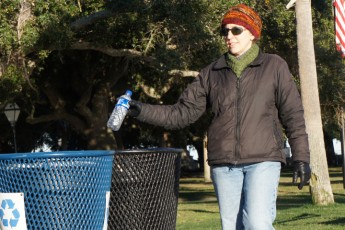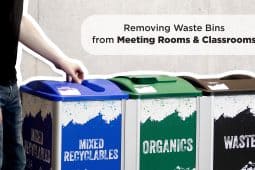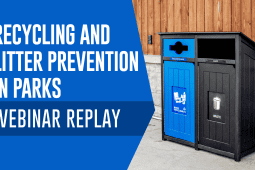If you’re one that loves to spend some time away from the hustle and bustle of modern life, or you’re just a huge fan of standing around a campfire for a few days, then there’s bound to be a camping trip marked on your calendar in the next couple of months.
While getting back to nature might seem like the apex of being green, the last thing you want is to leave a campsite looking like you’ve been hunkered down in some sort of post-apocalyptic scenario for the last several months.
A sustainable camping trip is pretty easy to achieve – all you need is to cut back, pack light and camp nearby!
![]()
Camp Nearby
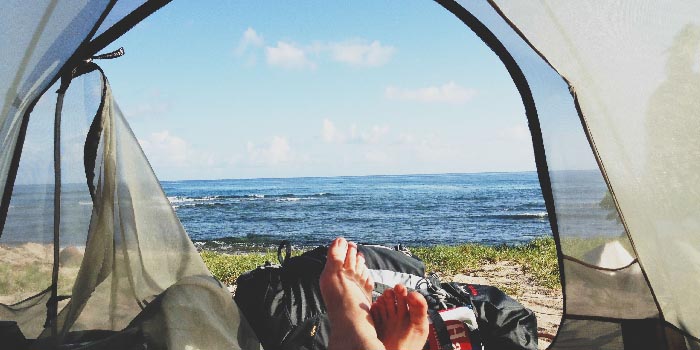
Try to pick campsites that are close to home to help cut down on fuel costs for you while also decreasing greenhouse gas emissions on the environment.
Tons of information on federal, state, provincial and local campgrounds can be found here.
![]()
Leave the Site like You Found It
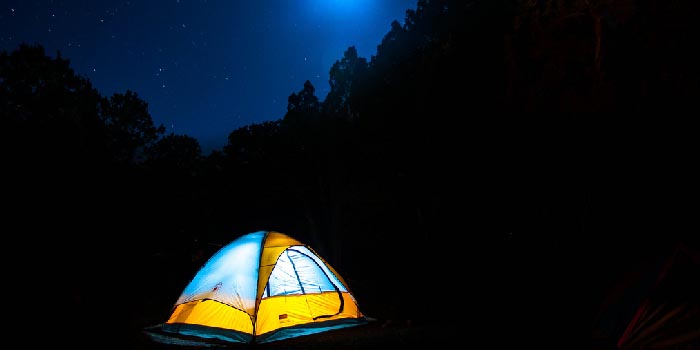
Unless you plan on living off the land like your ancestors, chances are your food and libations will come in packaging and containers that may not be biodegradable. Make sure to bring garbage and recycling bags or a bin of some sort (wink, wink), to collect your waste and recyclables until you leave. Then – take the bags with you when you go!
Make sure you leave the site like you found it! Depending on the campsite, there may be a place to put your refuse once you’re ready to go home. If you’re unsure, inquire before booking a site to see what is offered regarding waste and recycling.
![]()
Avoid Disposable Cutlery and Paper Plates
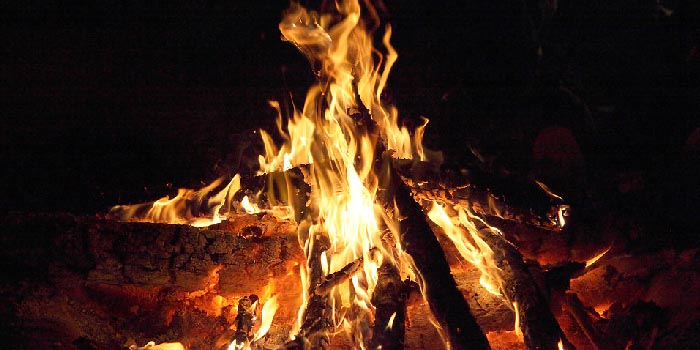
Picking yourself up some reusable camping cookware will help cut down on waste. As convenient as paper plates and plastic cutlery may be, these items can really start to pile up after a few days of campfire meals, especially if you camp in large groups.
Set up a wash-basin with some hot water (compliments of the campfire). Bring some dish-soap from home and you’ll be able to keep your cookware clean during the weekend.
![]()
Pitch a Tent
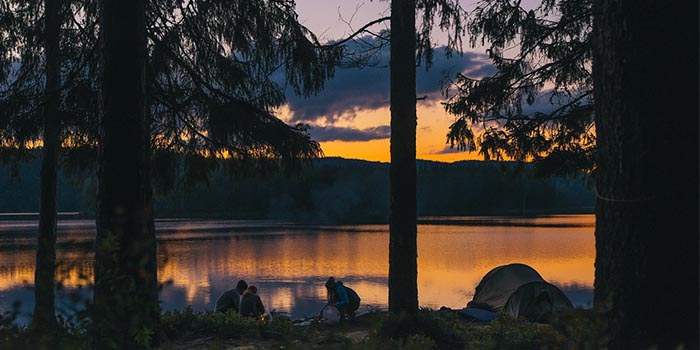
If you have an RV, more power to you…literally! Using a tent as a means of shelter during your camping excursion is the least carbon intensive option out there. Sleeping under the stars is also an option but as any Canadian that camps before and after the summer months can attest, the elements (aka snow in the month of May) can be a little too harsh to go sans shelter.
![]()
Respect the Fire
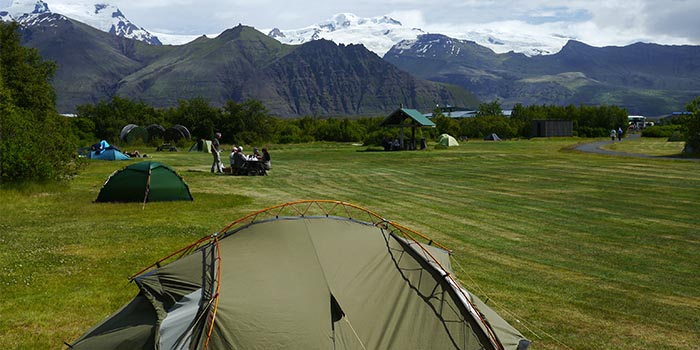
The campfire serves as the heart and center of any camping trip, so treat it with the respect it deserves.
Keep the fire contained to a fire pit and beware of any fire bans in the area where you’ve decided to go camping. Parts of North America are experiencing some incredibly dry conditions as of late which serve as the perfect catalyst for wildfires. If it’s time for bed or a much-needed daytime nap, make sure the fire is out before you leave it unattended.
DO NOT burn your garbage or recycling in the fire, the chemicals that make up the packaging are not good for your lungs or the environment. Plus, who wants to roast smores over burning plastic wrap?
It doesn’t take much to cut down on your environmental impact while on a camping excursion. Be a considerate guest in Mother Nature’s house, a little preparation and research go a long way!
![]()
Sources
http://sustainablepersonalfinance.c.om/green-camping-tips/
http://www.doityourself.com/stry/sustainable-solutions-fo.r-camping#b
![]()



